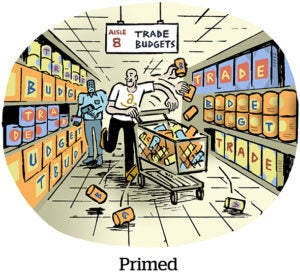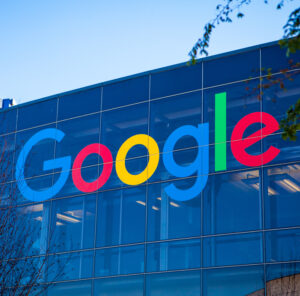Here’s today’s AdExchanger.com news round-up… Want it by email? Sign up here.
Amazon’s Private Parts
Amazon has been reducing the number of private-label products it sells, and leaders have also “discussed the possibility of exiting the private-label business entirely,” The Wall Street Journal reports.
Many Amazon private-label product lines have slow or diminishing sales. But there’s another more pressing reason Amazon might nix the entire business: It’s a major antitrust headache.
For years, Amazon blatantly favored its private-label lines. Before Amazon’s ad business really took off, it would essentially use private-label brands to test high-value impressions, such as ad units that popped up just above the fold of a page (in other words, what loads before a user scrolls down). In some cases, these ad units were not even available to other brands, just a nice bennie for private labels.
The loss of those insider advantages could be partly why certain private-label lines have been experiencing disappointing sales.
On the antitrust front, Amazon has been caught using data from third-party products sold on its marketplace to launch near-clone versions of its own that go on to usurp the original product’s search ranking on the platform.
A true private-label exit by Amazon would be a shock, though. For all the trouble associated with them, private labels strengthen Amazon’s ad business by bringing competition to shopper search keywords across the board.
Tech Offensive
If lawmakers can’t pare back Big Tech’s control over the open web, maybe they can impose a tithe.
It’s not a new idea. In 1997, the Federal Communications Commission established the Universal Service Fund (USF) to collect fees from phone carriers to subsidize lower-income service.
Now, some lawmakers argue these subsidy fees should be repurposed to rein in tech companies that profit off the back of a large, vibrant internet – as in, they soak up a lot of bandwidth.
One bill that’s been winding its way through the Senate for a year is called the FAIR Contributions Act, and it would require the FCC to evaluate broadband and even streaming distributors to determine an appropriate fee.
“In 2016, the USF was stretched to support broadband as well as phone service [subsidization],” writes Kim Keenan, co-chair of the Internet Innovation Alliance, in a Next TV column.
Big Tech benefits from a subsidized consumer base without paying up, Keenan argues, and “so widening the contributions base to include broadband-related tech company revenues is a logical, fair and reasonable modernization.”
Other countries already have similar laws, including South Korea, where there’s a fee on any consumer technology company that accounts for at least 1% of total internet traffic.
The Search Continues
Google is still the king of search, with the market share and major licensing deals to prove it.
But “there’s a growing appetite for alternative search engines,” TechCrunch reports.
One startup in the mix is called You, a more developer-oriented search engine that parses queries into different programming languages. Last week, You closed a $25 million funding round led by Radical Ventures, a Canadian fund, with participation from Salesforce CEO Marc Benioff’s Time Ventures. (Richard Socher, You’s founder and CEO, is Salesforce’s former chief scientist.)
“We envision You.com becoming a search platform that is open and allows others to build on top of all of the search technology that we’ve created,” Socher tells TechCrunch. For example, one app built on You is a product specifically for Twitter searches.
In other alt search engine news, a team of Google Search and Amazon vets is busy with developing Neeva, a search startup that’s trying to earn its place as a subscription service.
Hey, it could happen. If the Netflix/Microsoft ad partnership news teaches us anything, it’s not to dismiss the sleepers.
United Against
Unity’s merger with ironSource has proven divisive among Unity game developers.
Some devs are taking issue with ironSource’s past reputation. Before ironSource pivoted to in-game ads after mergers with Supersonic and Tapjoy, it was notorious for developing InstallCore, a wrapper that bundled junk software with adware and knockoff apps. InstallCore eventually became infamous enough to be blocked outright by Windows Defender and Malwarebytes.
IronSource has since reinvented itself as a specialist in video game monetization. But old reps die hard, leaving some game developers to cynically post on social media that their Unity games may now be flagged by firewalls and malware blockers or banned from Apple’s App Store.
Comments made by Unity CEO John Riccitiello during his press tour to promote the merger aren’t helping. Speaking about the need to implement monetization earlier in the game development process, Riccitiello told PocketGamer.biz that developers who oppose monetization are “pure, brilliant people” … but “also some of the biggest f*cking idiots” and his “favorite people in the world to fight with.” OK.
Those comments unsurprisingly drew the ire of devs and gamers alike, many of whom blame execs like Riccitiello, formerly the CEO of EA Games, for the prevalence of microtransactions and ads in games.
But Wait, There’s More!
The FTC asks companies to stop making misleading data claims. [Morning Brew]
TikTok’s global chief security officer, Roland Cloutier, steps down amid concerns about the Chinese Communist Party’s access to US user data. [WSJ]
Hulu reportedly demanded a Democratic congressional campaign remove at least one of three “sensitive” issues – abortion, climate change or gun laws – from a digital campaign ad. [Jezebel]
Instagram plugs along, testing out its new subscription offering in beta. [Search Engine Land]
Ad prices are decoupled from the economy … for now, at least. [Digiday]
You’re Hired!
Vimeo brings on Lynn Girotto as CMO and Ashraf Alkarmi as product chief. [release]















